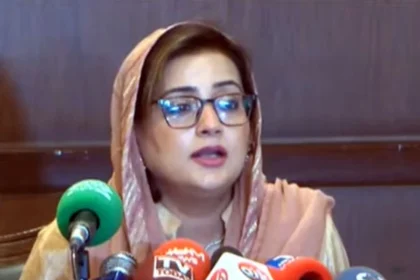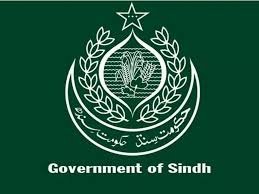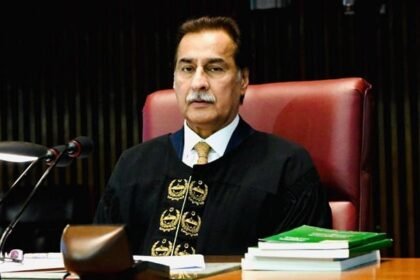The International Monetary Fund (IMF) has officially approved a $7 billion loan for Pakistan under the Expanded Fund Facility (EFF), with nearly $1 billion released immediately to assist the country in navigating its ongoing economic challenges. This decision comes at a critical time as Pakistan continues to face multifaceted economic hurdles, including inflation, governance issues, and a restrictive business environment. This article will explore the context surrounding this financial assistance, the implications for Pakistan’s economy, and the potential paths forward for the nation as it works to stabilize its economic landscape.
Economic Context
Pakistan has long been struggling with economic instability. Over the past few years, the country has faced a series of crises, including high inflation rates, currency depreciation, and rising public debt. The recent approval of the IMF loan is seen as a vital lifeline for the nation, which has been trying to implement various reforms to stabilize its economy.
In the last fiscal year, Pakistan’s economy showed a modest growth rate of 2.4%, which, while an improvement, is still far from sufficient to meet the needs of its rapidly growing population. The IMF’s statement notes that inflation has significantly decreased, falling to single digits, largely due to effective fiscal and monetary policies. This marks a crucial turning point for the nation, as inflation directly affects the purchasing power of citizens and the overall economic environment.
The Role of the IMF
The IMF plays a crucial role in the global economy, particularly for countries facing financial crises. It provides financial assistance and guidance to help nations implement reforms aimed at achieving macroeconomic stability. The current package for Pakistan is intended to support the country’s efforts to address structural challenges while promoting sustainable growth.
The IMF has emphasized that while the current economic indicators show improvement, there are still serious underlying issues that need addressing. The release of the $1 billion tranche is part of a larger strategy designed to help Pakistan navigate the immediate financial challenges it faces while encouraging long-term reforms.
Key Economic Challenges
Despite the positive indicators, the IMF has issued warnings regarding several critical challenges that Pakistan must overcome:
- Difficult Business Environment: The business climate in Pakistan has been hampered by bureaucracy, regulatory hurdles, and inconsistent policies. These factors deter foreign investment and limit domestic entrepreneurship, hindering economic growth.
- Weak Governance: Governance issues have been pervasive in Pakistan, with a lack of transparency and accountability in public institutions. This has contributed to inefficiencies and corruption, further complicating the economic landscape.
- Excessive State Intervention: The IMF has pointed out that excessive state intervention in the economy can stifle competition and innovation. Reducing government control over various sectors is essential to fostering a more dynamic and competitive economic environment.
- Limited Tax Base: Pakistan’s narrow tax base continues to be a significant barrier to fiscal sustainability. The inability to generate adequate revenue constrains public spending on critical sectors like health and education, ultimately affecting economic growth and poverty alleviation.
- Insufficient Public Expenditure: The IMF has highlighted that expenditures on health and education are not sufficient for achieving lasting poverty alleviation. Inadequate investment in infrastructure further restricts economic potential and development.
Recent Economic Improvements
In recent months, Pakistan has made some strides towards stabilizing its economy. The agricultural sector, in particular, has played a significant role in this recovery. Improved agricultural output has contributed to better economic performance, helping to offset some of the negative impacts of inflation and low industrial growth.
Moreover, the State Bank of Pakistan (SBP) has taken decisive action by cutting its policy rate by 450 basis points since June 2024. This reduction in interest rates is intended to stimulate economic activity by making borrowing cheaper for businesses and consumers. Lower interest rates can help encourage investment and spending, essential components for driving economic growth.
Additionally, the presentation of a strong budget in June 2024 has been well-received, signaling the government’s commitment to fiscal responsibility. A balanced budget that prioritizes essential services and investments can instill confidence among investors and the general public.
Reforming Public Institutions
One of the critical objectives outlined by the IMF under the loan agreement is the reform of public institutions. Strengthening governance and enhancing public service delivery are essential steps in building a more resilient economy. This involves not only addressing corruption but also ensuring that public services are effective and accessible to all citizens.
Reforming institutions requires a multi-faceted approach, including:
- Capacity Building: Enhancing the skills and capabilities of public servants can lead to more efficient service delivery. Training programs and professional development opportunities are crucial in this regard.
- Transparency Measures: Implementing transparency and accountability measures can help build trust in public institutions. Citizens should have access to information about government actions, budgets, and expenditures.
- Decentralization: Empowering local governments to make decisions can lead to more responsive governance. Local authorities often have a better understanding of community needs and can tailor services accordingly.
Infrastructure Development
Infrastructure development is another focal point of the IMF’s recommendations. The lack of adequate infrastructure has been a bottleneck for economic growth in Pakistan. Investments in transportation, energy, and communication networks can significantly enhance productivity and attract investment.
Key areas for infrastructure investment include:
- Transportation: Improving roads, railways, and public transport systems can facilitate trade and reduce logistics costs. Efficient transportation networks are vital for connecting producers to markets.
- Energy: Ensuring a reliable energy supply is critical for industrial growth. Investments in renewable energy sources can help diversify the energy mix and reduce dependence on fossil fuels.
- Digital Infrastructure: Expanding internet access and digital services can enhance economic opportunities, particularly in rural areas. Promoting digital literacy can empower citizens and drive innovation.
Addressing Climate Change
Another significant concern is the impact of climate change on Pakistan’s economy. The country is highly vulnerable to climate-related disasters, including floods and droughts, which can have devastating effects on agriculture and infrastructure. The IMF has emphasized the importance of integrating climate resilience into economic planning and development strategies.
Key actions to combat climate change include:
- Sustainable Agriculture: Promoting sustainable farming practices can enhance food security and reduce environmental degradation. Research and development in agricultural technology can lead to higher yields and more resilient crops.
- Disaster Preparedness: Investing in disaster management systems can help mitigate the impact of climate-related events. Early warning systems and infrastructure improvements can save lives and reduce economic losses.
- Green Investments: Encouraging private sector investment in green technologies can drive economic growth while addressing environmental concerns. Policies that support clean energy and sustainable practices can create new jobs and economic opportunities.
The Path Forward
As Pakistan moves forward with the support of the IMF, the focus must be on implementing comprehensive reforms that address both immediate economic challenges and long-term structural issues. The success of the loan agreement will depend on the government’s commitment to transparency, accountability, and effective governance.
Furthermore, engaging with the private sector will be crucial in fostering a vibrant economy. Encouraging entrepreneurship and supporting small and medium-sized enterprises (SMEs) can create jobs and drive innovation. Providing access to finance, technical assistance, and market opportunities for SMEs can contribute significantly to economic growth.
The Role of International Partners
Securing continued financial support from international partners will also be vital for Pakistan’s economic recovery. Collaborating with development agencies, donor countries, and multilateral organizations can provide additional resources and expertise to implement necessary reforms. Strengthening diplomatic ties and promoting trade relations can open up new avenues for economic collaboration.
Public Awareness and Participation
Public awareness and participation in the reform process are essential for ensuring long-term success. Citizens should be informed about the economic challenges facing the country and the steps being taken to address them. Engaging the public in discussions about policy changes can foster a sense of ownership and accountability.
Community involvement in decision-making processes can lead to more effective and inclusive governance. Initiatives that encourage citizen participation in budgeting, planning, and oversight can empower communities and ensure that their needs are met.
The IMF’s approval of the $7 billion loan package represents a critical moment for Pakistan as it navigates a complex economic landscape. While there are signs of improvement, the challenges ahead are significant and require concerted efforts from all stakeholders. By focusing on comprehensive reforms, infrastructure development, and sustainable practices, Pakistan can pave the way for a more resilient and prosperous future.
The journey will undoubtedly be challenging, but with commitment, collaboration, and the right policies in place, Pakistan can overcome its economic hurdles and build a more sustainable and inclusive economy.
#Pakistan #IMF #EconomicStability #Bailout #Development #Reforms







